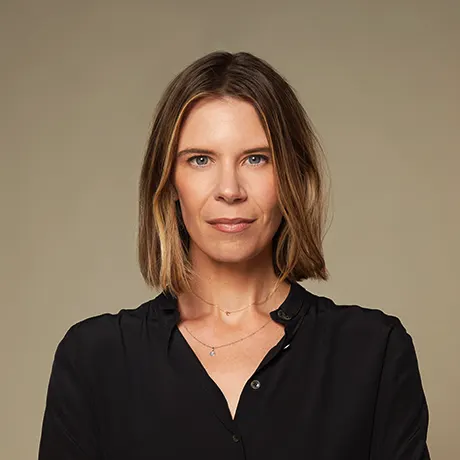Rejection sensitivity, ADHD drain, and the power of failure (Weston’s story)

Stay in the know
All our latest podcasts delivered right to your inbox.
“The cup that is draining.” That’s how musician and content creator Weston Gardner describes ADHD’s effect on him. He’d spent his whole life feeling like he couldn’t do things that came so easily to everyone else. Weston was at his wits’ end. Getting diagnosed with ADHD (along with anxiety and panic disorder) has helped him be kinder to himself and accept his ADHD brain for how it works.
Weston is a musician and content creator who goes by Arcane Anthems (@arcaneanthems). His music sets the scene for podcasts, Twitch streams, tabletop games like Dungeons & Dragons, and more.
This episode is guest hosted by ADHD Aha! alum Cate Osborn. Cate, aka @catieosaurus, is a content creator and co-host of Catie and Erik’s Infinite Quest podcast. Listen to this week’s episode to hear Cate and Weston talk about ADHD and gaming, rejection sensitivity, and the power of failure.
Related resources
In It podcast: The benefits of gaming for kids
Episode transcript
Laura: Hey, listeners! There's good news for me and also good news for you. I'm going on an extended vacation. And we thought that would be a great opportunity to invite one of our favorite ADHD podcasters, Cate Osborn, to fill in for me for a couple of episodes. You may remember Cate, aka Catieosaurus, from our episodes on ADHD and hormones and ADHD and sex. Cate is a content creator and host of the podcast "Catie and Erik's Infinite Quest." You're in good hands with Cate. So enjoy, and I'll be back soon.
Weston: Once I realized that embracing who it was that I was, embracing the limitations that I had, I found that vulnerability, that clarity, to be one of the greatest strengths.
Cate: Hi, everybody, and welcome back to "ADHD Aha!" I'm not Laura. My name is Cate Osborn. I go by Catieosaurus on all the corners of the internet where I am a full time content creator focused on neurodivergent intimacy and accessibility and gaming. Your wonderful host, Laura, is currently on sabbatical.
And so the kind folks at Understood.org have asked me to step in to her very large and impressive shoes and guest host for this episode. And I'm so honored and excited to be here with my very first guest, Weston Gardner, aka Arcane Anthems. Weston is a musician and a composer with ADHD. Weston, tell the people what you do.
Weston: Hey everyone. I run Arcane Anthems, which is kind of my online persona. I write tabletop music for Dungeons & Dragons games, for podcasts, for Twitch streams, and YouTube channels, and all of the above. So I get to work in all sorts of different styles and genres, and I get to constantly research new stuff. It's very good for somebody with ADHD like me, who gets to consistently change up what they're doing, learn something new, and use my skills in like new and unique ways all the time.
Cate: So I'm so curious, and I love this because I feel like we have been to so many conventions together. But I've never gotten a chance to just ask you about what you do. So this is my shot and I'm taking it.
Weston: Bring it on. Hit me.
Cate: First, for all of the lovely listeners at home, I feel like we should spend at least a couple of minutes talking about what tabletop role-playing games are, and why they might be important to somebody with ADHD. Do you want to take that one?
Weston: I always tell people it's the feeling of watching an epic fantasy movie, but it's — you're in it and it's your own. And it's you and your friends.
Cate: That's a great way to do that.
Weston: That's the way I like to describe it. Because in my musical life, I always describe what I do and the importance of what I do when describing it to movies or to video games, right? The importance of having music in a movie is the same as, you know, having it in a video game or having an any form of media, where it drives the emotion of the storyline.
And so what I do is I support that role playing around a table you and your friends are sitting around. You have somebody who's kind of in charge of the world. And you have everybody else who's in charge of their own character and their own personas. And you create a story together within the confines of whatever rule system you're using.
The one that everybody knows is Dungeons & Dragons, right? So that's just a rules system. That's just the physics of the world and how the game runs. But the story you're telling is the really important part.
Cate: One of the things that is fascinating about that entire sort of genre of entertainment is that there is a lot of evidence and a lot of studies that are coming out about the benefits of playing games like Dungeons & Dragons or other tabletop role-playing games on the neurodivergent brain, on the ADHD brain. They can be especially helpful for things like processing executive dysfunction and the learning how to support yourself and developing social skills and all that kind of stuff.
So there's a lot of like gameplay elements, but they can also be incredibly therapeutically beneficial, which I think is like really cool. And so that's why I'm so excited that you're here with me because we get to talk about creativity today.
But first, before we do that, Laura would be so very sad and disappointed if I didn't ask you to talk a little bit about your journey to an ADHD diagnosis, and what your ADHD "aha" moment was when it came to sort of accepting that and learning about your brain for the first time.
Weston: Well, mine starts very much with me in school. I think those are my earliest memories of me going to school and feeling like somebody who understood concepts very well, who tried very hard, who was among the kids who were, quote unquote, like more advanced. But I always felt something was missing. I just didn't understand how everybody else could do things that I couldn't do.
I would write one paragraph and they would have four pages done. And it was this gaping hole in my learning, and it plagued me. It was actually one of the reasons that I dropped out of college. It was like there was a — like I was drinking out of a glass that had a hole in the bottom. And I could never really fill it up enough to satisfy my thirst or to keep up.
And it wasn't until I had a breakdown in my early 30s — between work and being a dad and being a husband and managing all these other things — that I realized, you know, something isn't right. Something about me is different enough that things that seem normal to everyday people aren't normal to me, to everyday Weston, right? And so I — luckily the job that I was at had some really great kind of social services type benefits, right? And I was able to see a therapist. And I was able to see a psychiatrist. And they very quickly diagnosed me with ADHD and anxiety and panic disorder.
And I — like what a pivotal, monumental moment in my life to hear those words and to hear that validation. And the change that it's had in my life, and the change that it's had in my family's life and my extended family's lives, in my siblings' lives, has been so important to understanding that our brains just work differently. And all of a sudden, all the shame and all the guilt that I felt growing up for not being able to catch up, not being able to keep up, was gone.
Now for me, I know that I work differently. I know that I need to do things in a way that is going to support these conditions that I have, the way that my brain works, right? As opposed to constantly fighting against them, constantly feeling that I'm lazy or that I'm stupid or that I'm incapable of doing normal things. It has opened up my eyes to a world of understanding and acceptance and compassion. And I'm just so grateful for those diagnoses, honestly.
Cate: Oh, my gosh. I love that you were talking about the cup that is draining. That's such just like a poignant image that just is like, oh, my gosh, I feel that exactly. So when we talk about that sort of like ADHD drain, I guess we'll call it for right now. When you started deciding that what you wanted to do was music, what you wanted to do was this like career based in creativity and creation and that kind of stuff. Did you find that that sort of drain went away?
Weston: I was in the music industry for about 10 years, making music, playing shows in a band. And that did help me a lot to recognize that that kind of structurelessness and self-managing worked well for me. And then I got into a kind of a corporate retail job where I had to be on during these specific hours. And I had to do these certain things. And I needed to be there on time. And I — there was all these "hads" and "shoulds," and all these things that I needed to fit into somebody else created.
And that I think was the biggest problem — was my brain with ADHD doesn't work like everyone else's brain works. And so when you're trying to shove me into a box that somebody else created, it's going to be extremely uncomfortable for me. And it's not going to work, especially if I don't understand why I don't fit. And I'm trying to remember the initial question. Uh, yes.
Cate: That was OK. That was exactly, yeah.
Weston: Moving into music, and in particular into social media, into music creation, into connecting with people, I have found that being able to use an expertise and a passion of mine, and working when I can work. And then also recognizing that there are going to be times when I will sit down and not be able to do the thing that I've been doing for 20 years. And that it's not because I'm dumb. It's not because I'm stupid. It's not even because it's a creative block that people talk about all the time.
It's because my brain is just like, not today. There's no dopamine here today for you. You will not be as creative today. You will not be able to do these things. And instead of me saying, "No, I will do them!" and pushing through and blaming myself and getting angry, I'm like, OK, well, what can I do today?
Cate: So I am a content creator, and you are a content creator. And I think the most dangerous and stressful part of being a content creator is that there is an expectation that you make content like all the time, constantly. So how do you balance that? How do you balance the kind of like, OK, I have to make the content. I have to make the video, you know, to bring people over to my music, to my creative process. But also my brain is screaming at me, you know, not today, not today. You know, I got nothing to give. Like, what do you do on those days?
Weston: I have a lot of coping mechanisms and techniques that I've used so that I can do those things. And there will be days when you just cannot, you know, where it is a zero. And it's not even that there isn't something that you could do. It's that you can't figure out what that is. So that pushed aside, most of the time I — there's this idea in product development called a minimum viable product. So I like to say, OK, what is the very smallest teeniest, tiniest thing that I can do to check a box today and maybe like kick-start my brain?
It's like one of those old cars where you have to kind of turn turn the rotor on them, right? Maybe doing this small little thing and accomplishing this tiny little thing will kick-start the rest of it. So I have these minimum viable products. And with content creation, sometimes it's just using an audio and recording like a three-second video.
Sometimes it won't even be work related. Sometimes it'll be, oh, I'm just going to walk outside. And the reason I say that is that there's all these things in my life that I know that my brain needs. I need to move my body. I need to see the sunshine. I need to make sure that I'm drinking and eating food. There's all this kind of basic needs that as somebody with ADHD, it's very easy to neglect those things. Maybe I'll just put that one thing away. Maybe I'll gather my dishes from my desk. And maybe today is just a gather dishes from the desk day and move it to the kitchen day. And that's what I did that day.
Cate: I did not come here to be attacked in this way. How dare you, sir?
Weston: So I very visibly see those tiny things as victories, because I'm not fighting the same battles as neurotypical people. I need to recognize that me doing that small thing is a victory, just like somebody else working, you know, all day on a thing is a victory for them.
Cate: One of the things that I'm so curious about, and it almost sounds silly when I say it out loud, but I think you're really hitting on this idea of how recognizing your needs, honoring them as a neurodivergent person, helps to sort of fill that cup. And then from that cup you kind of can draw your creativity. You can draw that sort of like process of making and composing and being a musician and all of those like really exciting things that you do. So that's not a question. But I just wanted to say that because I think that's neat. Good job, Weston. You're going a great job.
Weston: The idea of shame, the idea of failing, the idea of all those things is a very powerful trend in neurodivergent people. And for me personally, it goes deep into this idea of that rejection dysphoria that at least I experience extremely heavily. The idea that you will fail people, will view you as a failure, and it will not be OK if you let people know that you're not all right.
And the best way that I have found to remove the power that failure has over me is to understand that for me, failing is a way that I become better. Failing is a way that I grow. And it doesn't mean that my rejection euphoria goes away — dysphoria goes away. Can you imagine? Rejection euphoria? No.
Cate: I feel like, yeah. Reject me!
Weston: Reject me! Those emotions are something that is almost like a learned behavior with people who are neurodivergent. And unpacking those things in a personal, professional relationship sense and becoming very just like open about the ways that you feel with people, has been very vital to me to overcoming the spiraling that can happen when you begin to feel those emotions.
Cate: I love that you say that because I'm also fascinated in how that shows up in your work. Because I think one of the really cool things — and for listeners who may not know, one of the things that Weston does is that all of Weston's music is royalty free. And it's available for the community to use in their tabletop games and their YouTube videos and their actual plays, like all of those different things.
I've always really admired that you do that, because it really feels like this act of giving, and this act of, you know, creation for sort of the good of the community. And giving people access to stuff that can sometimes be, you know, very like cost prohibitive. Is some of that emotional involvement, does that have to do with like your willingness to sort of like give to the community like and back in that way, if that question makes any sense? It made perfect sense in my head, did it make sense out loud?
Weston: Yes, it really makes a lot of sense.
Cate: And I was like, I don't know what I'm talking about.
Weston: I have never been asked that question in that way before in this context, and it's my way — oh, gosh. OK. Feel the emotions. It's my way of being there for people who.... Growing up, I felt very lonely.
Cate: Yeah.
Weston: And for me, it's very important that I help other people to know that they are not alone. That they have support. That there is somebody there who is looking out for them in kind of a mentor-type sense. I didn't have that growing up. All my music stuff. It always felt very lonely, stumbling through and failing over and over, and not understanding why I can't do the same things as everybody else.
And this is definitely a response to wanting to be there for people. And I can't be there for hundreds of thousands of people. That's not something that I personally can do. But I devised this method of saying, yeah, but maybe my music can. Maybe I can use this to make other people's games better or other people's experiences better, other people's entertainment more interesting. Maybe I can be the person there who can provide something of value.
They can be creative and just take this and use it and immediately see an improvement in whatever it is that they're using it for. And that definitely comes from a place of me feeling I don't want other people to feel alone. I don't want other people to feel abandoned. I don't want other people to feel to their own devices that no one is looking out for them and that they will fail and fail and fail over and over and over again needlessly.
Cate: I love that so much. Also, you said this like beautiful, eloquent speech. And all that I was thinking the whole time is like, yeah, me too. But I just talk about sex instead of, like you said, with music. And I talk about talking about relationships on the internet. But like, I feel the exact same way.
Weston: I love that. I'm so enamored and grateful for the things that I have learned from the videos that you have done. And being able to reframe my brain around intimacy, around relationships in the context of neurodivergency. And if we dive into relationships here, that's such an important aspect to why I was able to get diagnosed, is that I sat down on the couch with my wife Terena, and I told her all these things that were impossibly difficult for me.
And I broke down and I said, "I am at my wits' end doing the bare minimum right now." And I was sobbing. When that realization hit me — because I didn't realize the amount of energy until I verbalized it, that I was pouring into being a dad and being a husband and doing the things you need to do in a relationship. And she really saw me in that moment. And all credit to her was able to say, "Yeah, I see that now. Let's get you help."
Cate: Well, and I think that goes back to that sort of shame component, and that kind of loneliness component of like — for me it was that kind of like, you want to do a good job, You want to be the exemplary husband, partner, wife, employee, whatever. And so there's that, like the cup is draining, like you said earlier, straining and draining and draining. And you're trying to keep up. But at some point, like, it just becomes untenable.
Like you can't keep going in the way that you've been going, especially, I think, without a diagnosis and without that sort of context of understanding your own brain. And it's, of course, there's such high rates of burnout. Of course there's such high rates of struggles with intimacy and relationships and that kind of stuff in the neurodivergent community — because of that, you know, wanting to keep up appearances of everything is fine.
Weston: For me, that was the complete removal of the mask that we use to hide how much effort is behind the scenes. And Terena saw the cost and saw the inner workings and saw that everything was actually on fire, and everything is not fine. And I think that's where the compassion comes in. Having compassion for you and for yourself, and recognizing that the amount of energy that you pour into your every day is X times the amount of energy that some people — they don't have to do.
Cate: You've spoken so eloquently about just the experience of being a neurodivergent partner. What advice do you have for a partner who is maybe coming to terms with their diagnosis, or in the process of getting one, and is struggling to really like open up and drop that mask, like you said, and discuss things with your partner?
Weston: Being able to sit down and open up is a key part, I think, of any relationship. And if you and your partner are struggling with that, then that is where I feel like you need to start. Diving into the entirety of mental illness and all of that stuff might be a bit overwhelming if you haven't developed a relationship of open communication and vulnerability.
And I think that we need to give space for people who may have had different upbringings, may have had different relationships with behavior and struggle and culture, and all these different things that play into mental health. And not everybody is going to be as receptive to those conversations. And it's not that they won't eventually be.
Cate: You talked earlier about, you know, struggling in school and then sort of finding your way to music and that kind of thing. What advice do you have for the ADHD kids out there who might be interested in a career in music or composition, who might be, you know, struggling in school? Like, what would you say, a little, you know, I don't know, 10-year-old Weston.
Weston: I would say to start. That is the most powerful tool that I think anybody can have. And especially nowadays, being able to make music anywhere with anything. If you have a phone, you can make music. A friend of mine who for the past three years, very talented musician, has just been making music on his phone, on his literal — the thing is like a 5-year-old iPhone — he has been making music on.
Do not see the lack in your resources. See that there is an abundance of opportunity. And that music is all around you, even if it's just you writing out lyrics, even if it's just you expressing a melody. I always tell people that as you start to do things and as you start to tell other people that you're doing things, opportunities happen.
And I think that that is why social media has worked so well for all sorts of people, of all sorts of different passions, is that you are consistently telling people about what you love to do and about the things that are important to you. And that opens up this world of opportunity. So for anybody who is just starting out in music, just make music. Do not expect it to sound like a top producing, you know, engineer. Like, that is not what's important right now.
Try and write 100 bad songs. When you write a hundred bad songs, you are increasing your capability to write good things. And as a kid, because of that rejection dysphoria, I constantly wanted to write only good things. And so it would stop me from writing. It would stop me from showing people things I was working on. Try really, really hard to overcome that.
Write and leave it, write and leave it, write and leave it. Because it will never be the thing that you think is going to take off that takes off. Write and write and write. And talk about it and talk about it and talk about it. Learn to speak about the things that you love to do.
Cate: Incredible advice from Weston Gardner, aka Arcane Anthems. Weston, thank you so much for being here with me today. This has been incredible. It has been such an honor to get to speak with you. Can you please tell the kind people where to find you?
Weston: Absolutely. Thank you so much for having me. So online. I am Arcane Anthems everywhere. You can find me on Instagram or what's left of Twitter or Threads or YouTube. I try and have a very wide brush. If you want to support my music and get it firsthand and get kind of some behind-the-scenes stuff and all the things you can find me on Patreon. Arcane Anthems.
Cate: And where can they listen to your music?
Weston: Oh, that's, that's all over the place. That's all over streaming. Are you on Spotify? Are you on Apple Music? Are you a Amazon person? Are you on YouTube? Are you on TikTok? You can you can follow me over there. So I try to make music as accessible as possible. If you want to download all my free music, which is over like 80 songs at this point, you can go to my Patreon and you can download those tunes for whatever it is that you're creating. Also, my DMs are up and if you want to shoot me a, shoot me a message. And I love chatting with people. I do that all day long.
Cate: And thank you so much for being here. And thanks for being so honest and lovely and wonderful and amazing.
Weston: I appreciate that.
Cate: And I have been your guest host, Cate Osborn, aka Catieosaurus. You can find me on YouTube. You can find me on Twitter. You can find me on TikTok, Bluesky, Threads, pretty much wherever there's a Catieosaurus to be found, that's me. I'm also the co-host of "Catie and Erik's Infinite Quest: An ADHD Adventure." We talk about living life as neurodivergent adults, and occasionally we play TTRPGs. So if you want to check me out there, you absolutely can. And if you want to get in touch with me, you can head on over to Catieosaurus.com.
Laura: You've been listening to "ADHD Aha!" from the Understood Podcast Network. If you want to share your own "aha" moment, email us at ADHDaha@Understood.org. I'd love to hear from you.
If you want to learn more about the topics we covered today, check out the show notes for this episode. We include more resources, as well as links to anything we mentioned in the episode.
Understood as a nonprofit organization dedicated to helping people who learn and think differently discover their potential and thrive. We have no affiliation with pharmaceutical companies. Learn more at understood.org/mission. "ADHD Aha!" is produced by Jessamine Molli. Say hi, Jessamine.
Jessamine: Hi, everyone.
Laura: Briana Berry is our production director. Our theme music was written by Justin D. Wright, who also mixes the show. For the Understood Podcast Network, Scott Cocchiere is our creative director, Seth Melnick is our executive producer, and I'm your host, Laura Key. Thanks so much for listening.
Host
Latest episodes
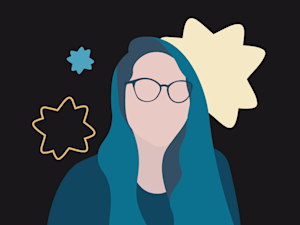
April 16, 2024
ADHD coach Jaye Lin was a gifted kid with undiagnosed ADHD. Now, she’s building communities and helping others cope with ADHD burnout.
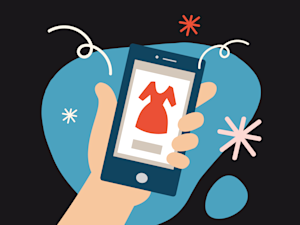
April 2, 2024
Writer Paulette Perhach had money coming in but struggled to keep it in her bank account. An ADHD diagnosis brought her struggles into perspective.
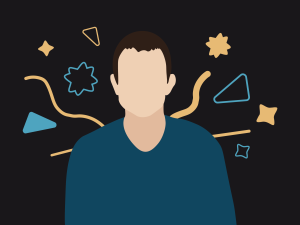
March 19, 2024
Eye to Eye founder David Flink is fighting the “just try harder” myth surrounding ADHD, dyslexia, and other learning and thinking differences.
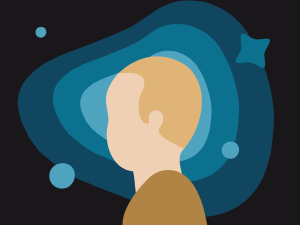
March 5, 2024
Peter Jones used to feel better saying he had a hearing problem rather than considering ADHD. Now, he knows he has ADHD and isn't afraid to say it.
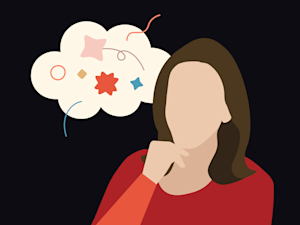
February 20, 2024
Before her ADHD diagnosis, ADHD coach Emily Weinberg thought she was just lazy. But in reality she was stuck in “analysis paralysis.”
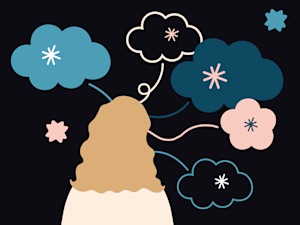
Carol Blumenstein was called an unteachable student. Now, she knows she has ADHD and dyslexia, and supports her five kids who learn differently, too.

January 23, 2024
Executive coach, actor, and former criminal defense attorney Ernest Anemone shares his ADHD story — and why he questions the term “attention deficit.”
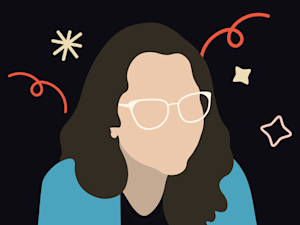
January 9, 2024
ADHD and post-traumatic stress disorder (PTSD) symptoms can look similar. And they can morph into what Hannah calls “a trauma ball of blame.”
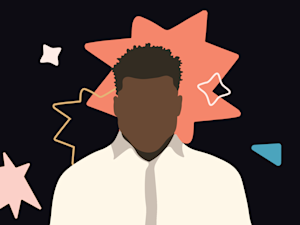
December 26, 2023
Livingston Steele was diagnosed with ADHD about a year into working at Understood.org. His experience and work have given him immense empathy for people with ADHD.
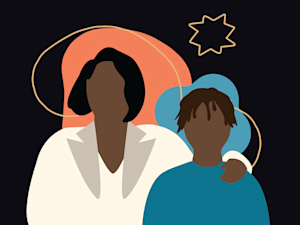
December 12, 2023
Wendy Zanders is a decluttering coach with ADHD. Find out how she got into organizing, and get a few tips for yourself.
